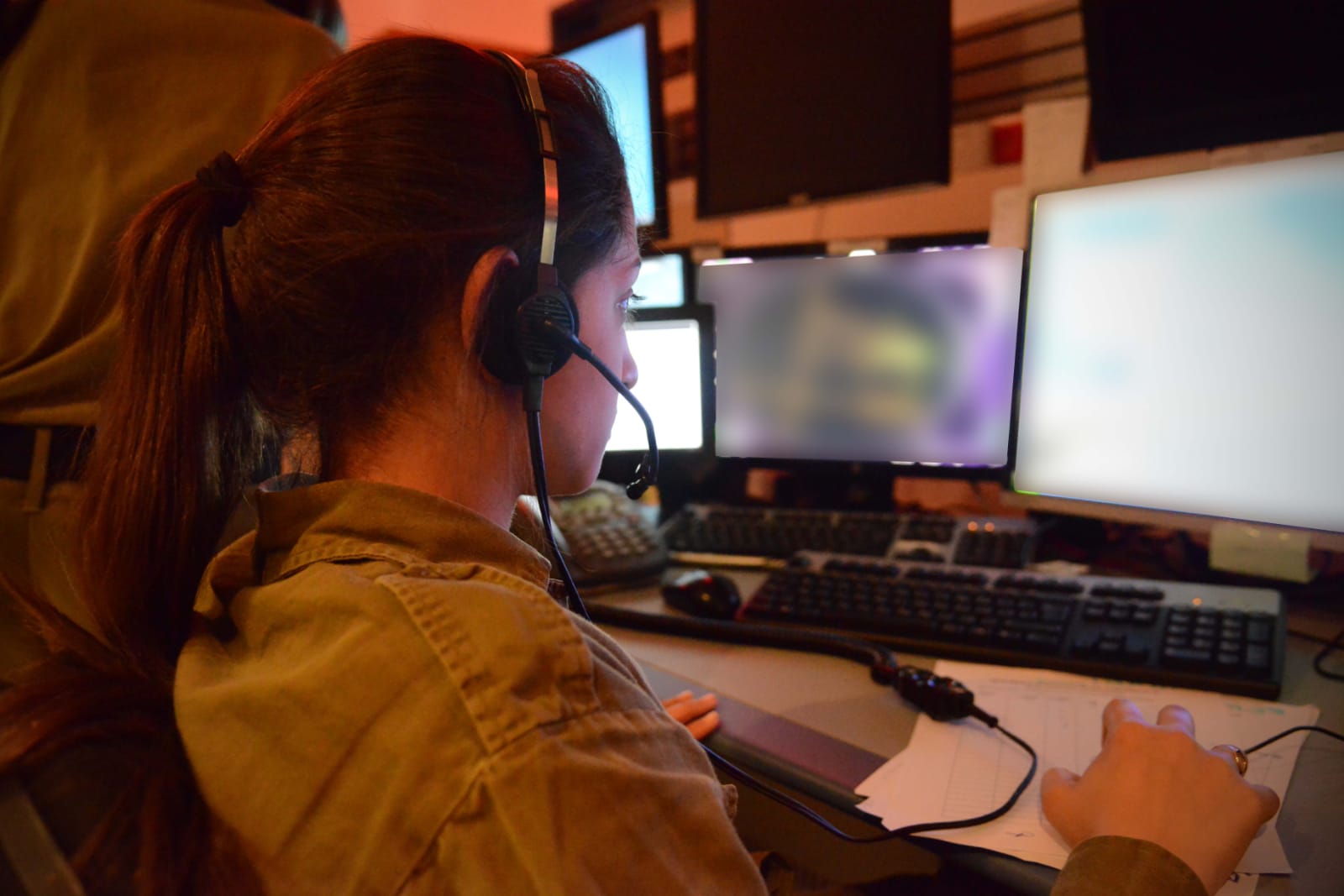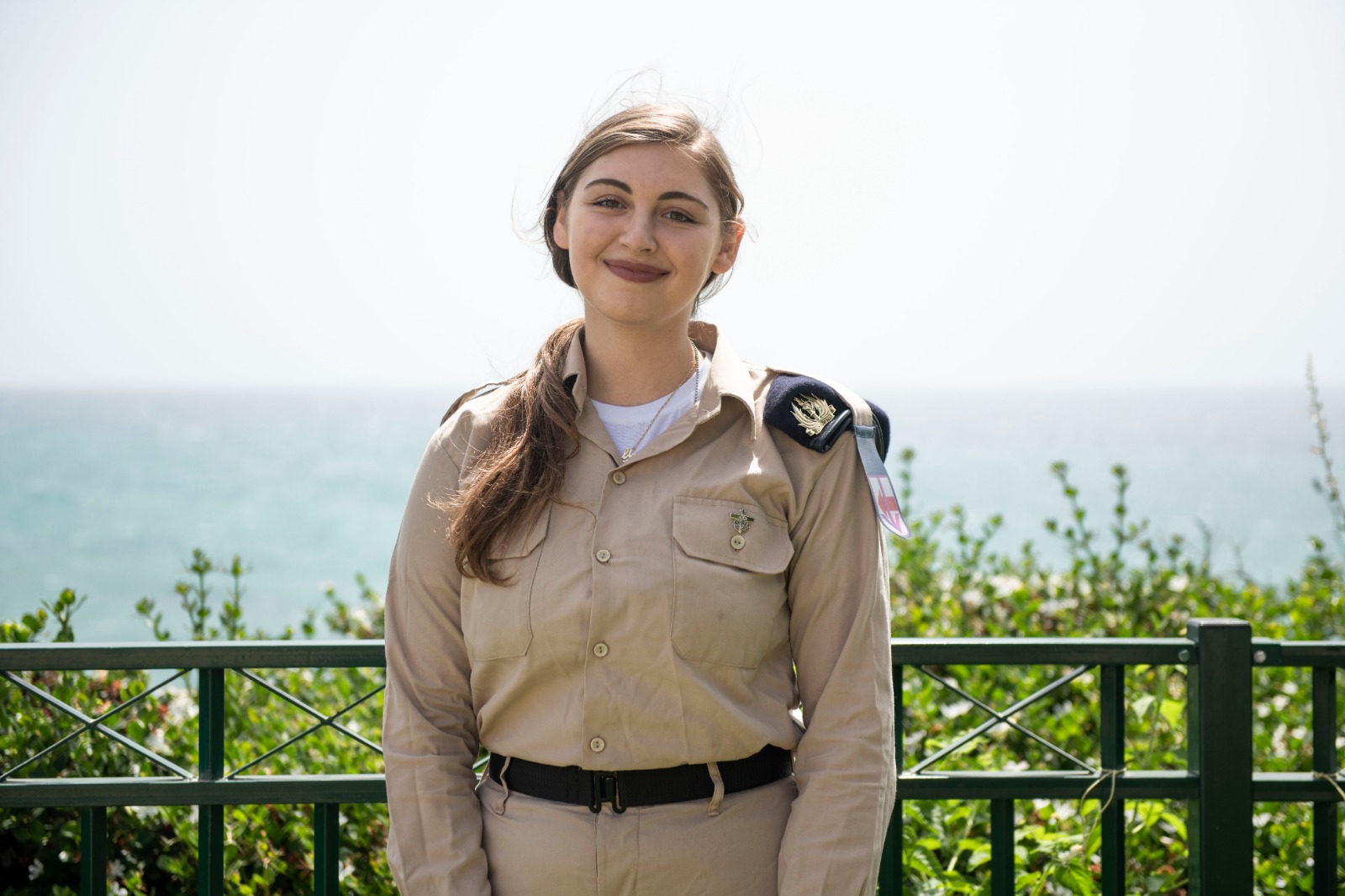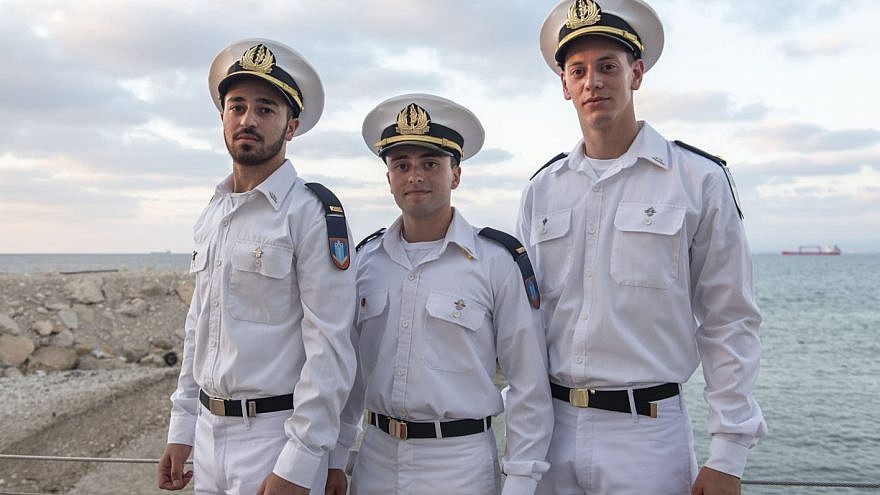The Israeli Navy’s maritime control centers play a crucial role in securing the country’s coastline from a range of hostile threats. To achieve that objective, the centers are equipped with cutting-edge cameras, radars and other sensors, and are staffed by highly trained personnel who must focus all of their attention during demanding shifts to detecting potential threats.
This combination of skilled personnel and advanced technology is what’s needed to successfully monitor sea traffic and pick out the threats from the innocent vessels, according to 1st Lt. Carmel Ben Ami, who is about to become a maritime control officer.
Ben Ami completed months of training to prepare for the role of commanding over control-center observation soldiers. He first spent three months at the Israel Defense Forces’ officers’ Training Base 1 in southern Israel and then transferred to the Navy’s training base in Haifa for further training. Ben Ami is due to take up his officer’s role at the Ashdod Arena, which monitors the Gazan-Israeli maritime border.
During his training, Ben Ami learned about the advanced sensors and command skills he will require for his role. His primary mission, he said, is to prevent sea-based terrorist intrusions; that includes being able to spot “terrorists pretending to be fishermen.”

“Most [Palestinian] fishermen want to make a living and we understand this. Our biggest challenge is to differentiate and know when we are not looking at innocent fishermen, but rather, something else,” explained Ben Ami. “It is very intensive work, involving intelligence and experience. We are guarding the entire Israel-Gaza and Israel-Egypt maritime borders. The latter can be very tricky as this is a state with which we have a peace treaty.”
Ultimately, the measure of success is a quiet border and uninterrupted civilian life, he added.
The Navy’s maritime control centers build up a real-time sea picture, using radars and cameras. They can order the Navy’s vessels to intercept any suspicious traffic.
“Often, we in the centers see things forces at sea many not necessarily. As a result, we cooperate so closely with our vessels,” said Ben Ami.
Commanders at the centers “have to understand that this is not a work place, but rather, the military. The soldiers don’t have parents on base. Any small problem, whether professional or personal, is our responsibility.”
Another challenge arises when commanders have authority over soldiers who are close in age. To overcome such tensions, commanders have to demonstrate an ability to understand and listen to their subordinates. “The right to command is something the commander has to earn with a lot of work,” said Ben Ami. “The role has two faces: professional, which is very important, and personal. These are two things that every commander needs.”
‘A full view of the water’
Private Tali Kugen, a maritime control observer who has been serving at the Haifa Arena in northern Israel for the past four months, grew up in New Jersey and moved to Israel a year ago at age 17. Now a lone soldier, she described the process of joining the Navy.
After being drafted, she immediately traveled to the Haifa training base. Becoming familiar with military discipline “was kind of a shock,” she acknowledged, although with time, she entered into military mode and began to understand “how the system works.”
After basic training, she started learning how to be a maritime control observer.
“It was a really interesting and fun course—not only because of the course, but also the way in which the commanders taught us, and the activities in between the training,” she said. “The discipline was still very high, but now we started to understand the system.”

After nonstop studying, simulations and mastering the technological systems, Kugen moved to the Haifa Arena control center and began her active service.
“I can say it has been unlike anything else I’ve done in my life, without a doubt,” she told JNS. Kugen said she has forged life-long friendships with her fellow observers. “The work is so difficult, but very satisfying,” she added.
“They call us the ‘eyes of the country.’ It’s really true. We are the ones that protect the coast, the waters and the shores of Israel. When you go swimming in the beach, you can swim peacefully because we are watching,” stated Kugen.
The challenges of the role are significant, with the female soldiers swapping between shifts and sleeping, and dealing with personnel shortages.
The observers also coordinate closely with the Israel Police’s maritime section, Kugen said, “because we have a full view of the water, and we are the ones who see what is happening first.”
The observers send reports to the Navy’s warships and fast-patrol boats on a regular basis.
The Haifa Arena is also responsible for the Lebanese-Israeli maritime border. Kugen said that responsibility means the personnel always have to be prepared for any situation.
“This is something that usually does not get the limelight. It’s not very known. Yet it’s one of the most important places in the military,” she emphasized. “On a daily basis, we protect the country, and it kind of goes without credit because that’s just what we do. But it’s so important. I have so much passion about what we’re doing and the way we’re protecting the country. I always try to explain to people that literally, we are saving lives.”


























